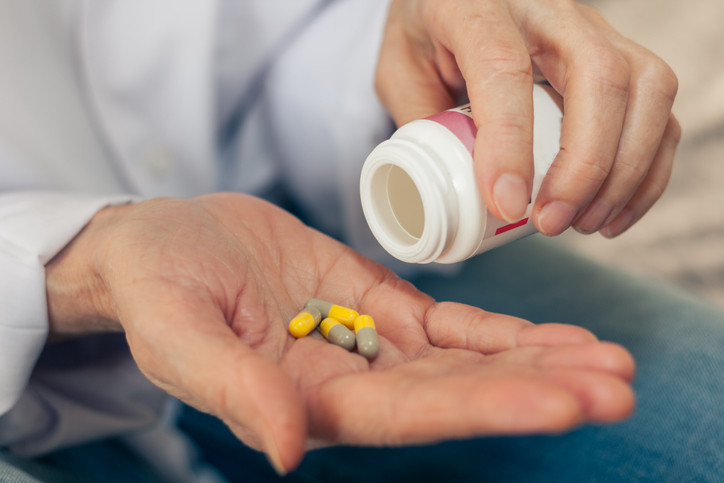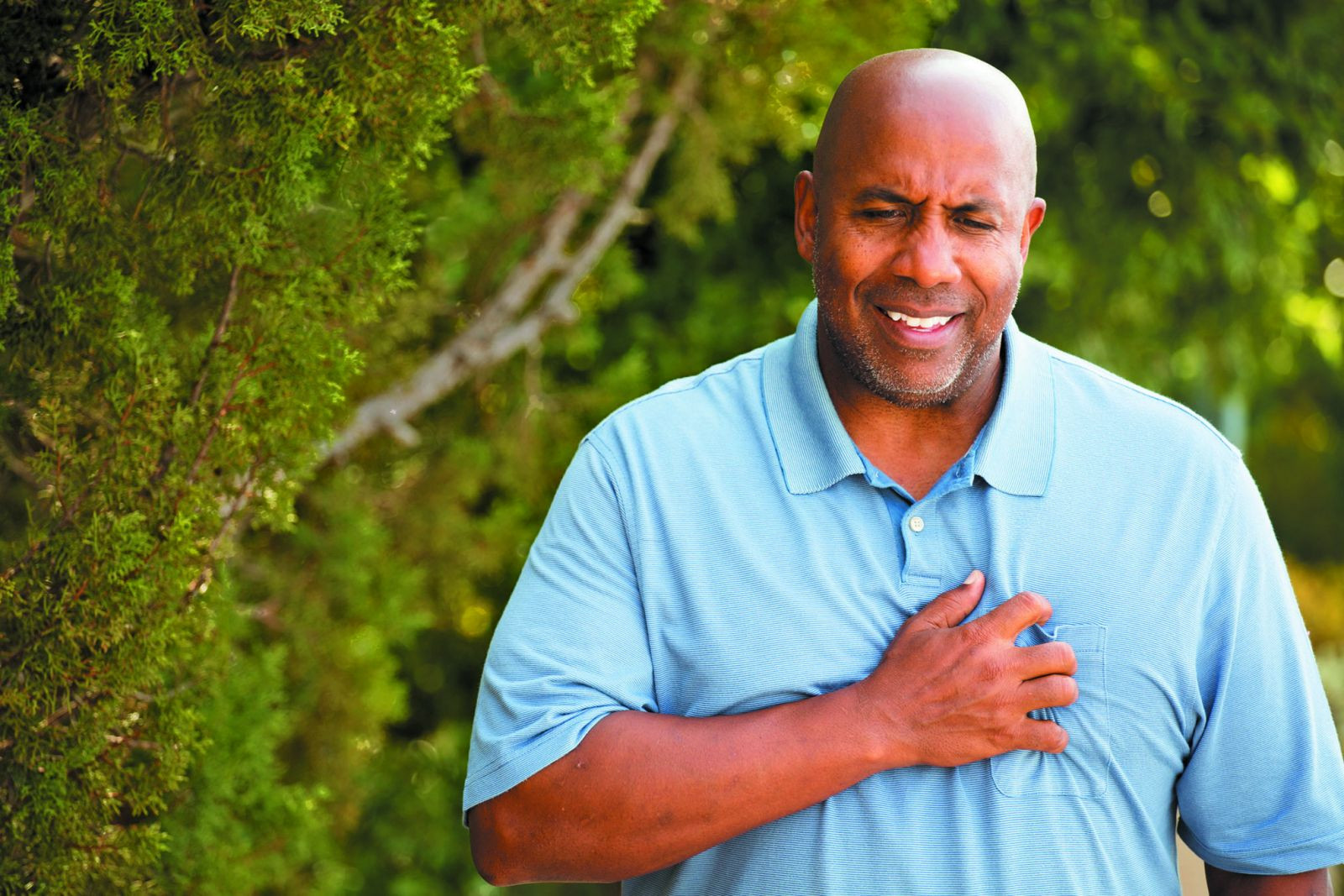
Celiac disease: Exploring four myths

What is prostatitis and how is it treated?

What is Cushing syndrome?

Exercises to relieve joint pain

Think your child has ADHD? What your pediatrician can do

Foam roller: Could you benefit from this massage tool?

Stepping up activity if winter slowed you down

Common causes of cloudy urine

Dragon fruit: How to enjoy this antioxidant-rich fruit

Are you getting health care you don't need?
Pain Archive
Articles
Too many pain pills after surgery: When good intentions go awry
A reasonable and well-intentioned effort to reduce and relieve pain can inadvertently lead to a potentially life-threatening addiction, but there are some surprisingly simple ways to avoid such scenarios.
5 Internet recommendations for joint pain: Do they work?
Some ideas seem reasonable, but that doesn't mean they'll help.
People increasingly consult the Internet about medical problems. If you're looking for approaches to relieve joint pain and inflammation caused by wear and tear (osteoarthritis) or an immune system attack (such as occurs in rheumatoid arthritis), you may find methods that sound promising and even sensible. But will they work? Here's advice on five pain relief methods commonly touted on the Internet.
1. Music therapy
Listening to music can evoke powerful emotions that help people relax or heal, which is the basis of music therapy. Research has found that music therapy is associated with less anxiety before surgery or during chemotherapy, and better functioning during physical rehabilitation.
Is it time to consider using medical marijuana?
The stigma is fading, but learn the pros and cons before trying it.
Despite the hype and popularity of medical marijuana, you may not be sure if it's something to consider. You're right to be cautious; the use of marijuana to treat health problems is still being studied, and we don't have all the answers about its risks and benefits.
We do know that medical marijuana use among older adults is increasing. "Older adults tend to use it for physical ailments. No. 1 is chronic pain. Insomnia is another big one, too. Older people have a hard time sleeping, and there aren't a lot of other safe options," says Dr. Peter Grinspoon, a primary care physician with Harvard-affiliated Massachusetts General Hospital.
Pain relief that's safe for your heart
Some common painkillers may boost the odds of a heart problem. Use them wisely to lessen your risk.
In 2004, the drug maker Merck pulled rofecoxib (Vioxx) off the market, following revelations that the popular prescription painkiller increased the risk of heart attacks and strokes. That action triggered a closer look at drugs in the same class, known as nonsteroidal anti-inflammatory drugs (NSAIDs). These drugs, which are widely used to ease pain, quell inflammation, and cool fevers, include over-the-counter drugs such as aspirin, ibuprofen (Advil, Motrin), naproxen (Aleve, Naprosyn) and the prescription drug celecoxib (Celebrex).
When heart attacks go unrecognized
A high pain tolerance may account for some "silent" heart attacks. But failing to recognize atypical symptoms is a more likely explanation.
Image: © digitalskillet/Getty Images
Nearly half of people who have a heart attack don't realize it at the time. These so-called silent heart attacks are only diagnosed after the event, when a recording of the heart's electrical activity (an electrocardiogram, or ECG) or another test reveals evidence of damage to the heart.
What's behind this surprising phenomenon? One explanation may be a higher-than-average tolerance for pain, as a recent study suggests (see "Does a high pain tolerance mask heart attack symptoms?"). Other people mistake their symptoms as indigestion or muscle pain. Still others may feel pain, but in parts of their upper body other than the center of the chest.
What to do about tennis elbow
Tennis elbow is the common term for lateral epicondylitis, an inflammatory condition of the tendon that connects the extensor muscles of the lower arm to a bony prominence on the outside of the elbow called the lateral epicondyle. The condition causes pain at the point where the tendon attaches to the epicondyle. The pain may radiate to the forearm and wrist, and in severe cases, grip strength may lessen. It can become difficult to perform simple actions like lifting a cup, turning a key, or shaking hands.
As many as half of all people who play racket sports have the condition, but most people who have tennis elbow didn't acquire it by playing tennis, squash, or racquetball. It can result from any activity that involves twisting or gripping motions in which the forearm muscles are repeatedly contracted against resistance, such as pruning bushes or pulling weeds, using a screwdriver, or playing a violin. Tennis elbow is an occupational hazard for professional gardeners, dentists, and carpenters.
Breast pain: Not just a premenopausal complaint
Breast pain after menopause can come in many forms
Menopause has come and gone. Why do I still have breast pain?
In most cases, breast pain is a by-product of reproductive life: Like breast swelling, it waxes and wanes during the menstrual cycle, and it's one of the first symptoms of pregnancy. Many women expect breast pain to go away after menopause. When it doesn't, they may fear they have breast cancer. Fortunately, breast pain is rarely a symptom of cancer, regardless of age. Still, that possibility should be considered, along with a number of noncancerous conditions that affect the breasts.

Celiac disease: Exploring four myths

What is prostatitis and how is it treated?

What is Cushing syndrome?

Exercises to relieve joint pain

Think your child has ADHD? What your pediatrician can do

Foam roller: Could you benefit from this massage tool?

Stepping up activity if winter slowed you down

Common causes of cloudy urine

Dragon fruit: How to enjoy this antioxidant-rich fruit

Are you getting health care you don't need?
Free Healthbeat Signup
Get the latest in health news delivered to your inbox!
Sign Up











